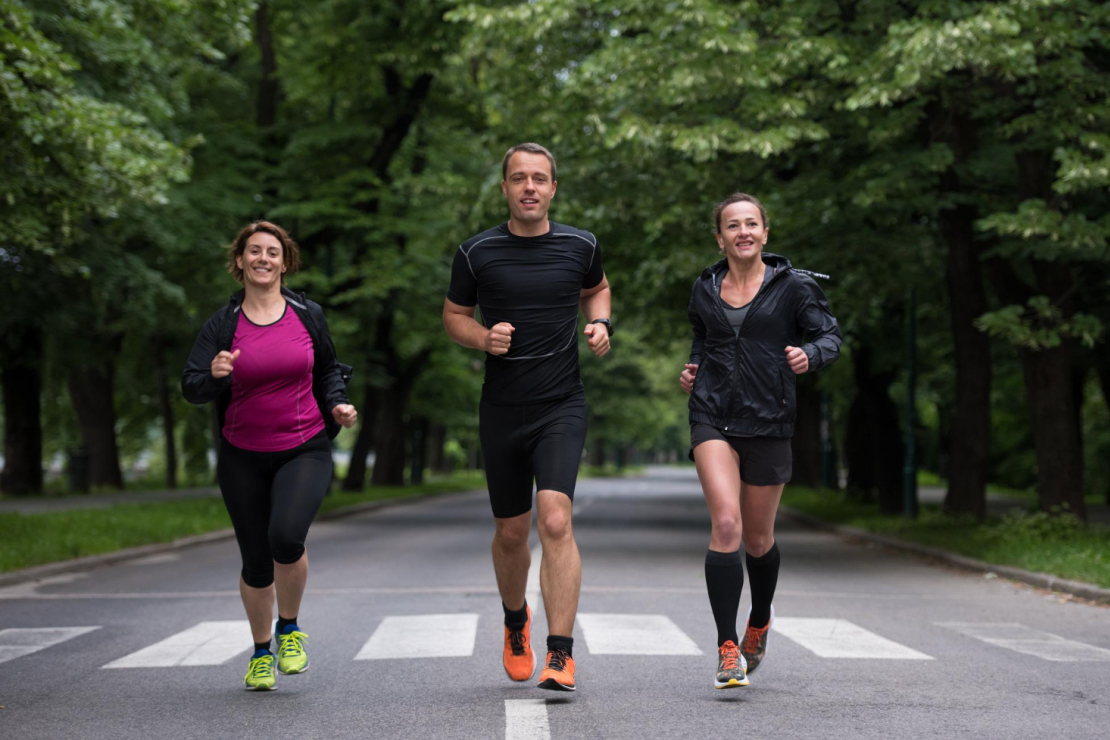How Many Calories Do You Burn Walking or Running 3 KM?
Discover the exact calories burned walking vs running 3 km, learn which is better for weight loss, and get expert tips for maximizing your calorie burn. Compare walking and running benefits for heart health and fat loss.

Table of Content
Introduction: Walking vs Running for Weight Loss
When it comes to weight loss, both walking and running are excellent forms of exercise. But how do they compare when it comes to calorie burn? This comprehensive guide breaks down the science behind calories burned walking versus running 3 kilometers, helping you make an informed decision about which activity best suits your fitness goals.
Understanding calorie burn is crucial for weight loss success. While both activities engage similar muscle groups, the intensity and impact of each can lead to significantly different caloric expenditure. Let's dive into the specifics of how many calories you can expect to burn with each activity.
How Many Calories Does Walking 3 KM Burn?
The number of calories burned while walking 3 km depends on several key factors:
- Your body weight and composition
- Walking pace (kilometers per hour)
- Terrain (flat, uphill, or varied)
- Weather conditions and resistance
- Your fitness level and efficiency
On average, here's what you can expect to burn walking 3 km at different paces:
| Walking Pace | Time for 3 km | Calories Burned (70kg person) |
|---|---|---|
| Casual (4 km/h)
Leisurely pace | 45 minutes | 150-170 calories |
| Brisk (5-6 km/h)
Moderate pace | 30-36 minutes | 180-200 calories |
| Power Walking (6-7 km/h)
Fast pace | 25-30 minutes | 200-250 calories |
Walking Calories Calculator: Understanding Your Burn
To calculate your specific calorie burn while walking, consider these factors:
- Multiply your weight (kg) by 0.53 for casual walking
- Multiply your weight (kg) by 0.71 for brisk walking
- Multiply your weight (kg) by 0.89 for power walking
- Multiply the result by the number of kilometers walked
For example, a 70kg person walking 3 km at a brisk pace would burn approximately: 70 × 0.71 × 3 = 149 calories
How Many Calories Does Running 3 KM Burn?
Running typically burns more calories per kilometer than walking due to its higher intensity. Here's what you can expect to burn running 3 km at different paces:
| Running Pace | Time for 3 km | Calories Burned (70kg person) |
|---|---|---|
| Beginner (8 km/h)
Light jog | 22-25 minutes | 270-300 calories |
| Intermediate (10 km/h)
Steady run | 18-20 minutes | 300-330 calories |
| Advanced (12 km/h)
Fast run | 15-17 minutes | 330-360 calories |
Walking or Running: Which Is Better for Weight Loss?
While running burns more calories per minute, walking might be better for weight loss for several reasons. The lower intensity of walking makes it more sustainable and accessible, especially for beginners or those carrying extra weight. Research shows that consistent walking can lead to significant weight loss over time, with studies indicating that regular walkers often maintain their weight loss better than runners in the long term.
The key advantage of walking lies in its sustainability and lower impact on the body. When walking, you're less likely to experience the exercise-induced hunger that often comes with high-intensity activities like running. This means you're more likely to maintain your caloric deficit, which is crucial for weight loss.
- Lower impact on joints and reduced injury risk
60% less impact force compared to running
- Easier to maintain consistency with daily walks
Average adherence rate of 80% vs 60% for running
- Better for beginners and those with higher body weight
Reduced risk of overuse injuries and burnout
- Can be sustained for longer periods
Average walking session: 45-60 minutes vs 20-30 minutes running
- Lower cortisol production compared to running
Helps prevent stress-related weight gain
- Better fat-burning zone maintenance
Stays in 60-70% of max heart rate for optimal fat burn
- Easier to incorporate into daily routine
Can be split into multiple sessions throughout the day
When it comes to burning belly fat specifically, both activities can be effective. The key is consistency and creating a sustainable caloric deficit through regular exercise and proper nutrition. Walking may have an edge for belly fat reduction due to its effect on cortisol levels, as lower-intensity exercise tends to promote better hormonal balance for fat loss.
Heart Health Benefits: Walking vs Running
Both walking and running offer significant cardiovascular benefits, but they affect heart health in different ways. Research from the American Heart Association shows that both activities can reduce the risk of cardiovascular disease by 30-45% when performed regularly. The key difference lies in how they achieve these benefits and their impact on different aspects of heart health.
Regular engagement in either activity can lead to improved heart function, but the intensity and duration of each exercise type creates unique adaptations in the cardiovascular system. Understanding these differences can help you choose the most appropriate activity for your specific health goals.
- Walking Benefits:
- Lower blood pressure
Average reduction of 5-8 mmHg in systolic pressure
- Reduced risk of heart disease
25-30% reduction in cardiovascular events
- Improved circulation
Enhances peripheral blood flow by 15-20%
- Stress reduction
Lowers cortisol levels by up to 30%
- Better cholesterol management
Increases HDL by 5-10%
- Reduced inflammation
Decreases inflammatory markers by 10-15%
- Lower blood pressure
- Running Benefits:
- Increased cardiovascular endurance
Improves VO2 max by 15-20%
- Higher caloric burn
Burns 40-50% more calories per minute than walking
- Improved heart strength
Increases left ventricular mass by 10-12%
- Enhanced metabolic health
Boosts metabolic rate for up to 24 hours
- Better arterial elasticity
Improves arterial compliance by 20-25%
- Stronger stress response
Enhances heart rate variability by 15-20%
- Increased cardiovascular endurance
Daily Goals: Walking 3 KM a Day Benefits
Walking 3 km daily can lead to significant health improvements, both physical and mental. This moderate distance, which takes about 30-45 minutes to complete, hits the sweet spot for daily physical activity recommendations from major health organizations. Research shows that maintaining this daily walking habit can lead to cumulative health benefits that become more pronounced over time.
The beauty of a 3 km daily walking goal lies in its achievability and sustainability. It's enough distance to provide meaningful health benefits while being manageable for most people to incorporate into their daily routine, regardless of their fitness level or schedule.
- Potential weight loss of 0.5-1 kg per month (combined with proper diet)
Based on 3,500 calorie deficit per pound of fat
- Improved cardiovascular health
Reduces resting heart rate by 5-8 beats per minute
- Better mental well-being
Increases endorphin production by 20-30%
- Enhanced joint mobility
Improves range of motion by 10-15%
- Increased daily energy levels
Boosts oxygen circulation by 15-20%
- Improved insulin sensitivity
Reduces blood glucose levels by 10-15%
- Better sleep quality
Increases deep sleep duration by 15-25%
- Enhanced cognitive function
Improves memory and focus by 10-20%
- Stronger immune system
Increases natural killer cells by 15-20%
- Reduced risk of chronic diseases
Lowers risk factors by 20-30%
Calories Burned by Duration
Here's a quick reference for calories burned at different durations:
- 45 minutes of brisk walking: 180-220 calories
- 1 hour of walking: 240-300 calories
- 10,000 steps (approximately 8 km): 400-500 calories
Conclusion: Finding Your Perfect Pace
Whether you choose walking or running, the key to weight loss success is consistency and progression. Start with walking if you're new to exercise, and gradually increase your pace or transition to running as your fitness improves. Remember to track your steps and distance, as this can help maintain motivation and monitor progress toward your weight loss goals.
"The best exercise for weight loss is the one you can stick to consistently. Whether walking or running, choose what brings you joy and fits your lifestyle."
Start Your Health Journey Today
Download Macro Tracking AI and take control of your nutrition with the power of artificial intelligence.
Download on App Store

